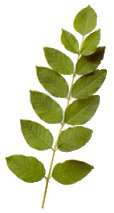Liquorice has been used for over 4,000 years

It is native to southern Europe, in particular the mediterranean regions and notably in Italy.
English cultivation of the herb was started in Yorkshire by the Dominican Black Friars in the middle ages.
Liquorice is an expectorant and anti-inflammatory, making it excellent for coughs and associated conditions.
It seems that Liquorice soothes the irritation of inflamed or injured skin surfaces. Liquorice actually inhibits the secretions of the digestive system, which makes it useful in treating certain gastric complaints.
Some more interesting background
Liquorice is also spelt as licorice in the USA and Canada. In China it is commonly called Gan Zao and this sometimes translates to "sweet root". It is cultivated in extensively in other countries such as Russia, Spain and India.
It is an anti-inflammatory and an expectorant and is therefore used in cough medicines, cough drops etc. to soothe irritated mucous membranes.
Basically, an "expectorant", is something that helps to thin the mucus and this is easily to expel. It often congregates in the throat, making it easier to expel the mucus and so can help relieve the congestion caused by colds.
Unfortunately some children's cough medicine doesn't actually contain any liquorice at all. It often just has a liquorice taste, which usually comes from anise, not liquorice!
Other traditional uses as a supplement
It also soothes the irritation of inflamed or injured skin surfaces. Liquorice actually inhibits the secretions of the digestive system, which makes it useful in treating certain gastric complaints, stomach ulcers and to lower acid levels in the stomach.
It can also act as a mild laxative. There is documented use in Japanese and Chinese journals of liquorice being used to ease digestive difficulties and upsets.
Liquorice contains phytoestrogens (plant estrogens) which may help some with PMS and menstrual problems such as bloating and irritability and in the menopausal part of life.
It can also give great support to the adrenals. These glands are stimulated by both physical and psychological stress. The adrenals pump out adrenalin into the system, accelerating the heart rate and pouring sugar into the bloodstream giving us energy and stamina.
But due to the daily abuse of bad diets and toxins the adrenals can suffer leading to adrenal exhaustion manifested by fatigue, muscle weakness and indigestion. Liquorice may help to tone the adrenals, strengthening them so that they can continue to do their job, releasing adrenalin into the system in the correct amounts.
The herb's main compound, glycyrrhizin is many times sweeter than sugar, hence it's use in the food industry and it's addition to sweets, liquers etc. However, many "liquorice" products are actually flavoured with anise oil, which has a very similar taste.
Occasionally liquorice can cause blood pressure to rise, so do not use this herb if you have high blood pressure or heart disease. It's not be taken if you are pregnant or breastfeeding. It is usually recommended that it only be taken for several weeks or months and then have a similar length break before using again.
Liquorice products click here

